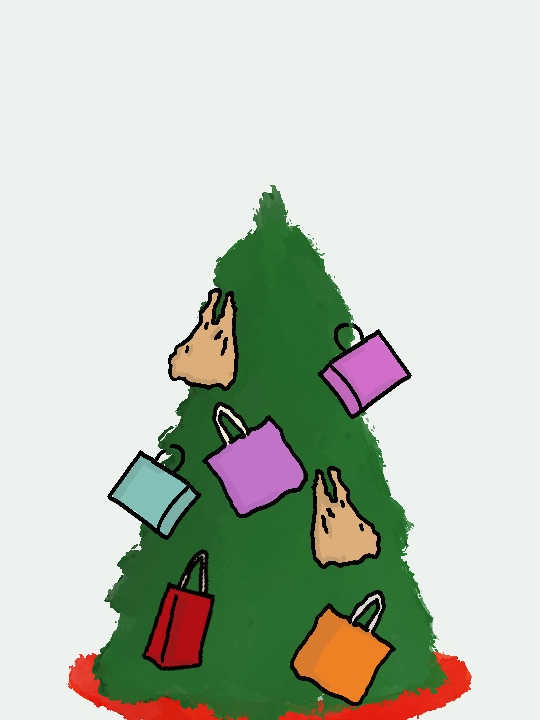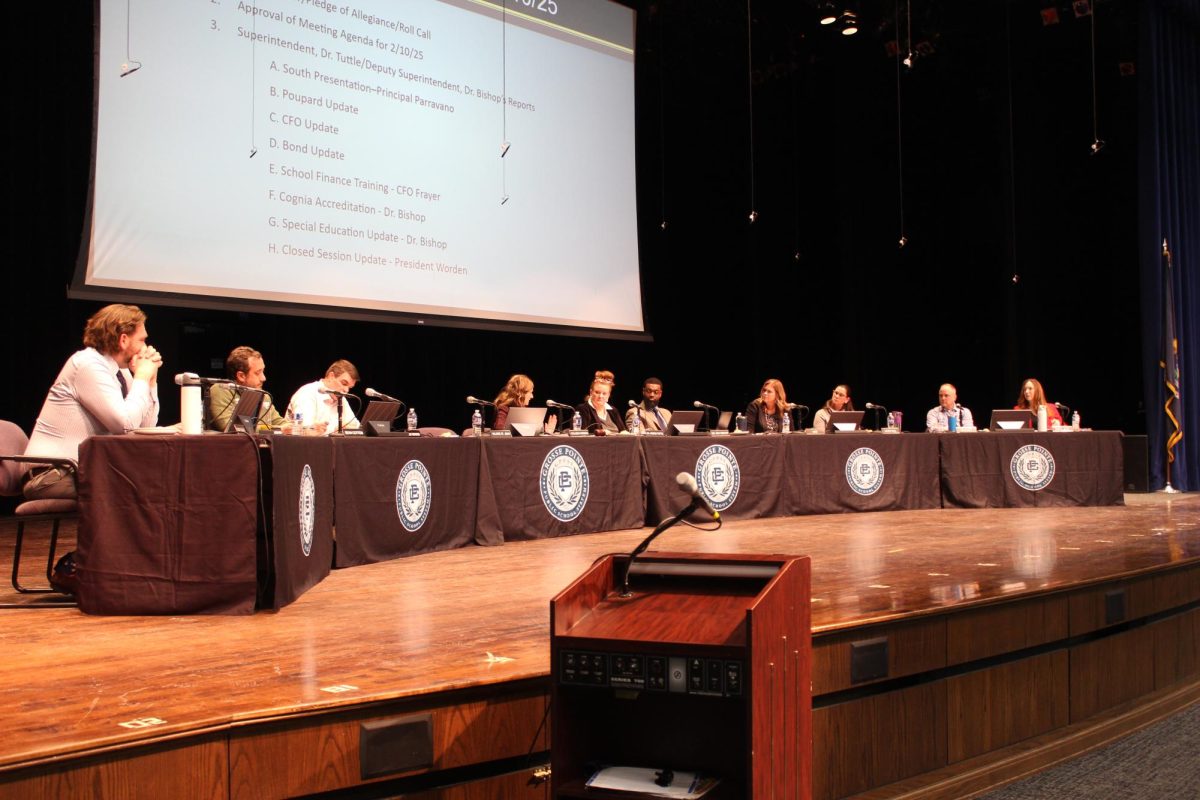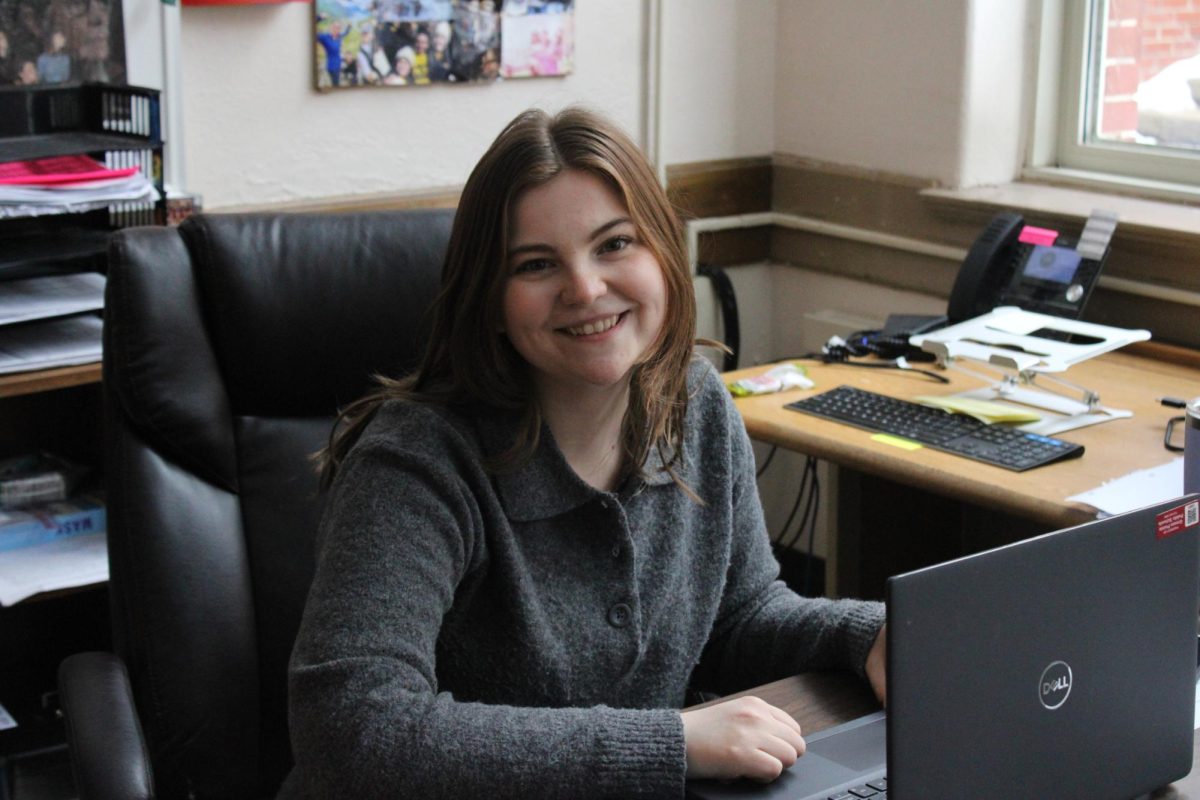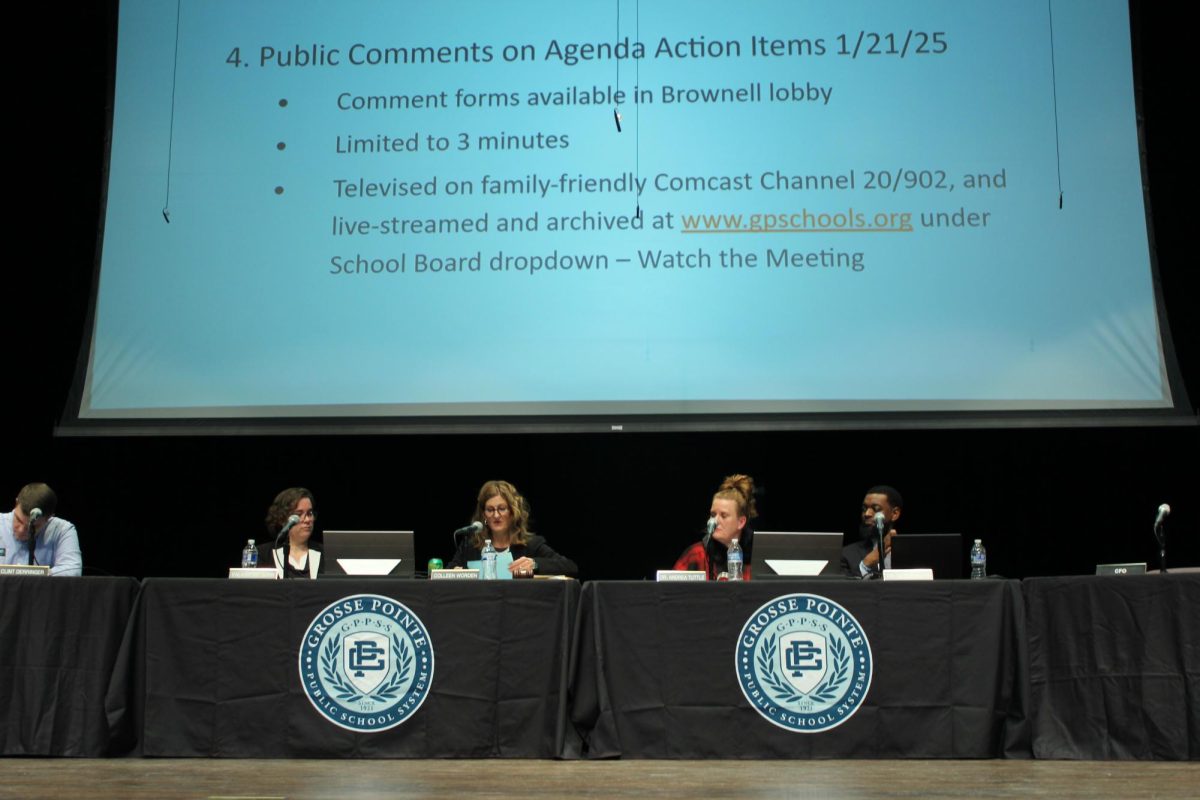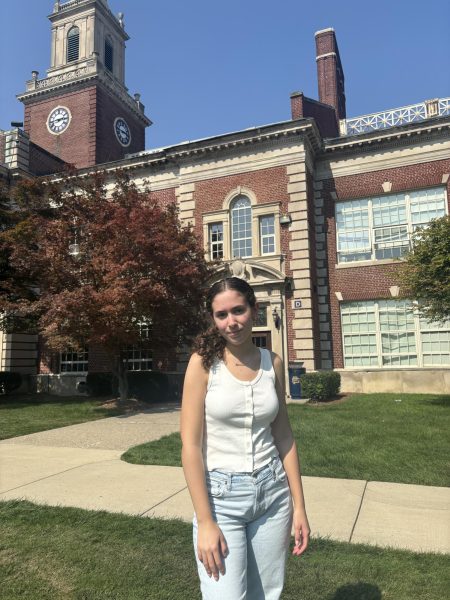Christmas: the word means something different to everyone, but it also means something different every year. More than just a holiday, it’s history—one that’s evolved a whole lot from the religious observance it originally was. It’s become a commercialized explosion of business and profit; more about giving presents than spending time with loved ones.
Whether it’s going to the store with your mom to pick out holiday decorations, shopping for a new pair of plaid pajamas for Christmas Eve night or buying your best friend yet another secret Santa gift, we’ve all fallen somehow into the economic pit that comes at the end of each year. While many people are brand new to that experience, some are lucky enough to remember what Christmas was like before it became a shopping holiday.
“People worry too much now about what to buy for whom,” 86-year-old Grosse Pointe resident Margaret Torp said. “There’s a lot of stress. Gift giving has gotten much larger, and more money is spent on you that people might not have.”
Growing up in England during World War II, Torp said she didn’t have many of the privileges kids do nowadays around the holiday season, especially when it came to gift giving. Her family had to stick with more homemade methods when it came to presents.
“We didn’t give a lot of presents,” Torp said. “You didn’t ask your parents to buy you a toy. Most of what was given were things that you can make. Our gifts were never wrapped; they were just under the tree.”
Some of Torp’s favorite gifts were even simple foods that were harder to come by with the war going on in Europe, like fruit and chocolate.
“Oranges were a very significant part of Christmas because oranges were very rare,” Torp said. “To get an orange was really the gift that was great.”
With her grandchildren having grown up in the United States, Torp said she has noticed a lot of differences in what the Christmas holiday means to them than what it meant to her as a child because of the way the environment has influenced them.
“I think to them it’s more a time of dinners, going out, meeting people and having people come to the house,” Torp said. “But when I was growing up, it was just the family; you never met (with) other people.”
Torp said she didn’t think so much about going out around Christmas time because of the challenging circumstances she faced with the conflict going on at the time.
“Being raised during the war made a difference because we really couldn’t go places,” Torp said. “If you went somewhere, there could be a bombing and you might end up in an air raid shelter.”
After moving to the United States, Torp said she is appreciative of all the new privileges she has, but still tries to avoid overspending and indulging in Santa Claus-decorated coke bottles during the holidays to stay true to her childhood values.
“We’re very family oriented, but still it’s different,” Torp said. “Times have changed a lot, and you have to adapt to it.”
Unlike Torp, eight-year-old Grosse Pointe resident Letty Nynehuis has only seen a few Christmases in her lifetime. She said her annual tradition is waking up at the crack of dawn to open presents from Santa and her family.
“I wake up super early and try to wake up my parents because I’m so excited,” Nynehuis said. “We open presents straight in the morning when I wake up.”
While being around family is important to Nynehuis on Christmas, she said her favorite part is the surprise of ripping open a new gift from under the tree.
“Christmas is filled with a lot of activities,” Nynehuis said. “Usually, (my favorite is) just to open presents.”
At South, the Student Association tries to bring back the true spirit of Christmas by focusing on giving instead of getting during the holiday season through their annual Adopt-a-Family event. The program allows for classes to sign up to gather and wrap items for a local, less fortunate family that can brighten up their holiday season with a little less stress.
“Christmas time is the most family-oriented, loving time of the year,” 2022 Adopt-a-Family chair Charlotte Bedsworth ’24 said. “Most people enhance this with gift giving. However, not everyone is fortunate enough to do this.”
Adopting a family is a widespread holiday practice across the United States and a tradition that South is proud of. Bedsworth said she feels that it gives students a chance to connect with the lost meaning of Christmas, and share that with people that aren’t able to go on annual Christmas decoration shopping sprees.
“It creates a huge impact in our community, so it really is a win-win,” Bedsworth said. “The faces of students when they receive the gifts are priceless, and the feeling is unbeatable.”
According to the National Retail Federation, U.S. holiday sales have doubled into billions of dollars in the past 20 years alone. At the rate it’s going, that number will reach into the trillions this season. In fact, the economy would be in a permanent depression if December was taken off the shopping calendar.
“(For) any sort of retail company, the Christmas season and Black Friday is their big time of the year,” Digital Marketing Manager Regan Contrucci said. “They set more budget aside and put all their focus for any creative into that too.”
Contrucci said the digital age has made the commercial boom around the holiday season even more possible, with so many ads reaching people on social media and through specialized internet algorithms.
“There are audiences you can target that are super niche, like parents of children ages three to five,” Contrucci said. “All they care about is getting these ads in front of people; that’s why all we see are Christmas ads all the time. They just care about embedding their brand into people’s minds.”
As both a consumer and a marketer, Contrucci said she’s seen how companies have started taking advantage of the Christmas boom sooner each season.
“I think, since the pandemic, it’s exploded even more,” Contrucci said. “Before Halloween this year, we were seeing Christmas stuff in Target already and displays in stores. I haven’t seen that before.”
Brody Fitzgibbon ’25 has grown up in this age of technology and said he has seen how maturing, along with the boom of Christmas commercialization, has changed the holiday season for him.
“The magic definitely has changed,” Fitzgibbon said. “It was a lot more chill when I was younger, and now it’s gotten more stressful as I’ve grown up.”
Specifically, Fitzgibbon said he has seen holiday advertisements change as he’s gotten older with the internet becoming more and more influential, and how that’s placed a lot more stress on people at Christmas time.
“Growing up, ads became more intrusive (around) the holidays,” Fitzgibbon said. “They (felt) more targeted.”
Despite companies’ relentlessness when it comes to sales in November and December, Fitzgibbon said he believes commercialization has become more nuanced as a result of the times and resources changing throughout the country.
“The commercialization of Christmas has, in some ways, ruined the spirit of Christmas,” Fitzgibbon said. “But in some ways, it has highlighted what Christmas is all about.”










































































